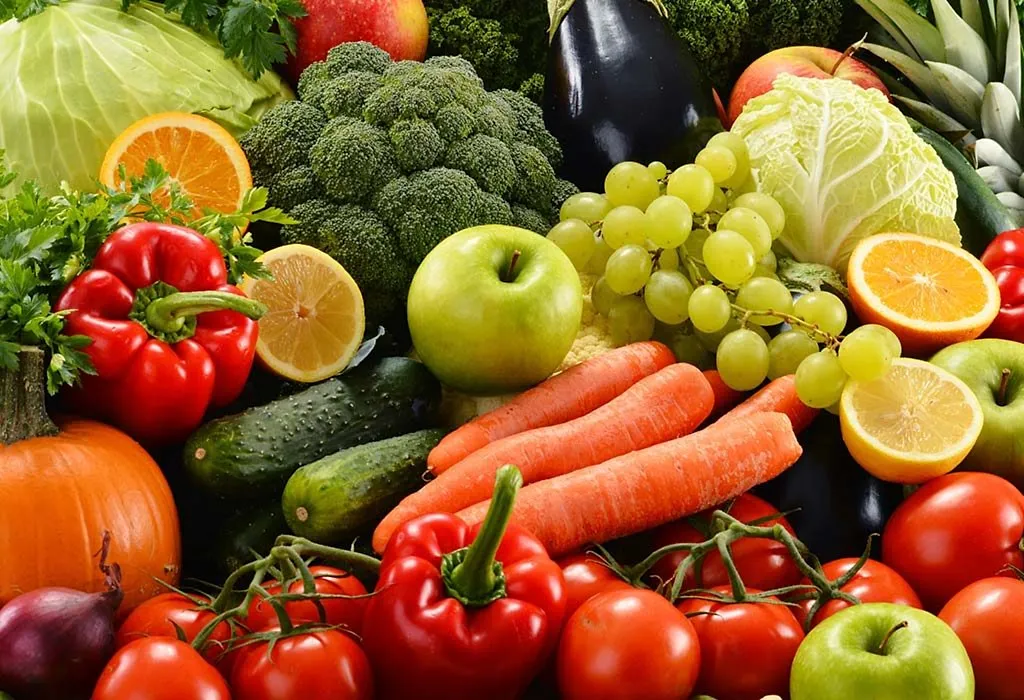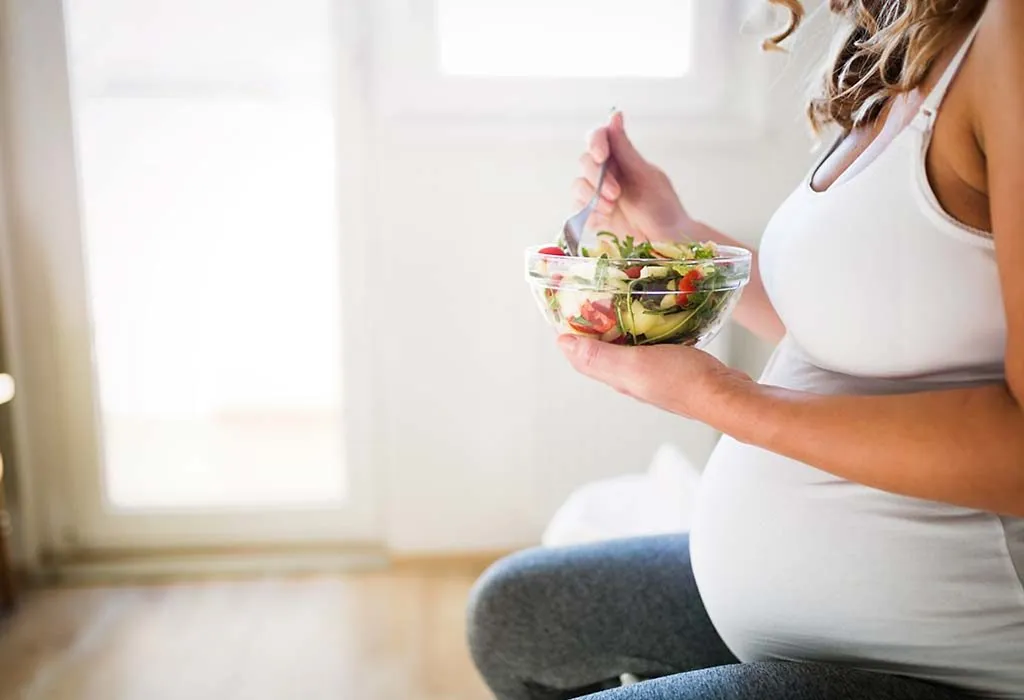Third Trimester Diet – What to Eat & What to Avoid
Congratulations on reaching the third trimester of your pregnancy! This is an exciting milestone as you near the end of your journey and prepare to welcome your little one into the world. While you may be tempted to indulge in your favorite foods to celebrate, it’s important to prioritize a healthy third trimester diet for both your and your baby’s well-being. Nutritious foods will support proper growth and development, setting the stage for a healthy delivery and a strong start for your baby’s life ahead. Remember to listen to your body’s needs and consult with your healthcare provider for personalized guidance. Enjoy this special time and take care of yourself!
Nutritional Needs During Third Trimester
During the third trimester of pregnancy, your nutritional needs play a crucial role in supporting the growth and development of your baby while also maintaining your own health. As you enter this final stage of pregnancy, it’s essential to focus on a well-balanced diet that provides essential nutrients for both you and your baby. Here are some key nutritional needs to consider during the third trimester:
- Increased calorie intake to support the growing needs of your baby and your own energy requirements.
- Adequate protein intake for fetal growth and development, as well as to support the changes happening in your body.
- Sufficient intake of calcium and vitamin D to promote strong bones and teeth development in your baby.
- Iron-rich foods to prevent anemia and support the production of red blood cells.
- Omega-3 fatty acids for brain and vision development in the baby, found in sources like fish, flaxseeds, and walnuts.
- Plenty of fruits and vegetables to provide essential vitamins, minerals, and fiber for overall health and digestion.
- Hydration is key, so ensure you’re drinking enough water throughout the day to stay properly hydrated.
- Avoiding excessive caffeine and limiting intake of high-mercury fish to minimize potential risks to the baby’s health.
Foods to Eat During Your Third Trimester
The growth and development of your baby will depend on what you eat, and that’s the reason why the 7 to 9 months pregnancy diet is crucial. You will now need about 200 additional calories every day, and an adequate quantity of vitamins, fibre and minerals. Here are the foods for third trimester that you should include in your pregnancy diet (1).
1. Foods Rich in Iron
According to the Cleveland Clinic, a diet that lacks iron could lead to anaemia during pregnancy, which can make you dizzy and tired (2). It may also cause bleeding during delivery. Hence, eating iron-rich foods is necessary. In your last trimester pregnancy diet, you can include meat, dairy products, eggs, wheat bran and beans.
2. Foods Rich in Protein
This is a very important part in your diet for pregnancy third trimester. Your body will need about 70 grams of protein during this stage since it helps in the formation of the baby’s body. Eating protein-rich foods will ensure that your blood glucose levels remain constant and the risk of diabetes is minimised. You can eat foods like tofu, legumes, fish, and meat.
3. Foods Rich in DHA
Having DHA-rich foods during pregnancy can help develop the baby’s brain. You will need about 200 milligrams of DHA (docosahexaenoic acid) daily and to meet these requirements you can include milk, eggs, and fruits in your meals.
4. Foods Rich in Folic Acid
Folic acid is found in green leafy vegetables like spinach and romaine lettuce – you can include these in your third-trimester diet. Consuming folic-acid-rich foods will ensure proper foetal growth and lower the risk of low birth weight for your baby. Apart from eating spinach and lettuce, you can even include folic acid, beans, and citrus fruits.
5. Foods Rich in Calcium
In the third trimester of your pregnancy, your baby’s bones should get stronger and for that, your pregnancy diet should include about 800 mg of calcium. To meet your calcium requirements, you can add and milk products like cheese, tofu, and yoghurt to your diet. Salmon and nuts are also good sources of calcium. However, if you plan to eat salmon, first, check with your doctor if you can eat it or not. If she gives the go-ahead, make sure you cook it well before eating.
6. Foods Rich in Magnesium
Your body will need magnesium as it helps absorb calcium and repairs damaged body tissues, so you must include magnesium-rich foods in your diet. For 350 to 400 mg of magnesium, you can include almonds, pumpkin seeds, barley, oats, beans and artichokes to your diet. Eating these foods will also provide relief from muscle cramps and lower the risk of preterm labour.
7. Foods Rich in Vitamin C, B6 and B12
These vitamins play a significant role in the development of a baby through the musculature and placental growth. These vitamins can be found in oranges, bananas, sweet lime, carrots, chickpeas, and almonds.
8. Fruits and Vegetables
Eating fruits and vegetables is also important during pregnancy as they can provide you with various nutrients. Fibre-rich fruits and veggies can provide relief from constipation and regulate digestion (3). You can have them in the form of juices, smoothies or raw, fresh, frozen or canned.
9. Nuts
Nuts are a good source of protein, thiamine, and essential omega-3 fatty acids. If you do not feel up for lunch or dinner, grab a handful of almonds, walnuts, or pistachios and enjoy.
And if you are looking for foods to increase weight in the third trimester, you should eat more frequently and include foods that are nutrient and calorie-dense like dry fruits, nuts, and crackers with peanut butter.
A Sample Diet Plan for the Third Trimester of Pregnancy
Having a well-balanced diet is the key to your diet during the third trimester. Foods rich in vitamins, iron, and other nutrients are essential in the third trimester. Here is a sample meal plan for the third trimester that you can refer to. Note: This is a sample pregnancy diet chart for third trimester, so before following it consult with your doctor and make the necessary changes.
| BREAKFAST | SNACK | LUNCH | SNACK | DINNER | |
| Monday |
Oats porridge with honey Apple juice
|
Sapodilla
|
Potato and onion paratha with curd, coriander and mint chutney | Mango panna and sprouted green gram chaat | Soya and mushroom curry and okra sabzi with cucumber and carrot salad + chapati/rice |
| Tuesday |
Grilled paneer sandwich and Tea
|
Guava | Kidney beans curry + capsicum and cauliflower sabzi and cucumber raita + rice | Almond milk | Red lentil dal + beans sabzi + chapati/rice |
| Wednesday | Wheat porridge with dates and milk | Grapes | Potato and peas curry + pumpkin sabzi + chapati |
Buttermilk with dhokla
|
Spinach paratha + beetroot raita
|
| Thursday | Sago upma with peanuts + coffee | Dried figs | Vegetable khichdi + pomegranate raita + roasted papad | Coconut water + roasted corn |
Bottlegourd kofta curry + crispy lotus stem sabzi with Pearl millet roti
|
| Friday | Semolina and mixed vegetable chila + buttermilk | Mango | Black gram dal + round gourd sabzi and Chickpea flour + chapati | Lassi + puffed rice with roasted peanuts | Pulao with onion and tomato raita |
|
Saturday
|
Methi paratha with curd | Papaya | Mung bean dal and carrot and peas with chapati/rice | Jal jeera + sweet potato chaat | Black-eyed peas curry + radish sabzi with roti |
| Sunday | Wholewheat toast with sautéed mushroom + banana milkshake | Pomegranate | Chickpeas curry + bitter gourd sabzi with chapati/rice | Lemonade with + mixed nuts and raisins | Pasta in tomato sauce + steamed broccoli sticks |
Useful Dietary Tips for the Third Trimester
According to the National Health Service, here are some dietary tips that you should follow in the 3rd trimester of pregnancy diet (4).
- Do not miss any meals and have small meals.
- Make sure your daily diet includes all food groups required.
- Cut out sugar and salt-laden foods or snacks from your diet.
- Reduce the consumption of caffeinated beverages.
- Quit smoking
- Avoid eating fried and spicy foods as they can lead to heartburn and indigestion.
- Incorporate prenatal vitamins into your daily routine to ensure you’re meeting all your nutritional needs, especially if you’re unable to get enough nutrients from food alone.
- Practice portion control to prevent excessive weight gain and discomfort, aiming for balanced meals and snacks throughout the day.
What to Avoid in the Third Trimester of Pregnancy?
Avoid including these foods in your third-trimester pregnancy diet.
- Salt: Avoid eating salty foods such as potato chips and fries.
- Raw Vegetables: Raw veggies or uncooked veggies can lead to a gas problem, hence you must avoid eating raw veggies. Before eating any veggie, make sure you cook it well.
- Spicy Foods: Spicy foods can cause indigestion and heartburn during pregnancy, hence they are best avoided in the last trimester.
FAQs
1. What foods should I avoid during the third trimester?
While it’s important to focus on nutritious foods, there are some items to steer clear of during the third trimester. When it comes to diet plan for pregnancy third trimester, avoid raw or undercooked meats, eggs, and seafood to reduce the risk of foodborne illnesses. High-mercury fish like shark, swordfish, and king mackerel should also be avoided to minimize potential risks to fetal development. Stay away from unpasteurized dairy products and soft cheeses like feta and brie to reduce the risk of foodborne infections. Deli meats and unpasteurized pâtés should also be avoided due to the potential presence of harmful bacteria.
2. How can I manage heartburn and indigestion during the third trimester?
Heartburn and indigestion are common discomforts during the third trimester. To manage these symptoms, avoid fried and spicy foods that can trigger acid reflux. Instead, opt for smaller, more frequent meals throughout the day to prevent stomach distension. Choose low-fat and easily digestible foods like lean proteins and whole grains. Additionally, avoid lying down immediately after eating and remain upright for at least an hour to aid digestion and reduce the likelihood of heartburn.
3. Are there any specific dietary considerations for managing gestational diabetes in the third trimester?
For those managing gestational diabetes, dietary management is crucial during the third trimester. Monitor carbohydrate intake and focus on complex carbohydrates like whole grains and legumes to help stabilize blood sugar levels. Include lean proteins and healthy fats in your meals to promote satiety and prevent spikes in blood glucose. Avoid sugary snacks and beverages, opting instead for fruits and vegetables as snacks. It’s important to follow a meal plan provided by a healthcare provider or registered dietitian to ensure balanced nutrition while effectively managing blood glucose levels.
This was all about diet for pregnant women in third trimester. If healthy food has always been your mantra, pregnant or not, you won’t need to make any significant changes. But if not, then make some dietary changes in the third trimester as well. You have done so well so far, so continue with that and your baby will grow properly! However, do check with your doctor before including anything in your diet and have a safe pregnancy!
References/Resources:
1. Pregnancy and diet; Better Health Channel; https://www.betterhealth.vic.gov.au/health/healthyliving/pregnancy-and-diet
2. Nutrition During Pregnancy: Foods To Include and Foods To Avoid; Cleveland Clinic; https://health.clevelandclinic.org/pregnancy-diet/
3. Chambial. S, Dwivedi. S, Shukla. K, John. P, Sharma. P; Vitamin C in Disease Prevention and Cure: An Overview (Indian Journal of Clinical Biochemistry); National Library of Medicine; https://www.ncbi.nlm.nih.gov/pmc/articles/PMC3783921/; October 2013
4. Have a healthy diet in pregnancy; NHS; https://www.nhs.uk/pregnancy/keeping-well/have-a-healthy-diet/
5. Thiamin; Oregon State University; https://lpi.oregonstate.edu/mic/vitamins/thiamin
6. Healthy Weight during Pregnancy; EatRight.org; https://www.eatright.org/health/pregnancy/prenatal-nutrition/healthy-weight-during-pregnancy
7. FAQs: Nutrition During Pregnancy; American College of Obstetricians and Gynecologists; https://www.acog.org/womens-health/faqs/nutrition-during-pregnancy
8. Foods to avoid in pregnancy; NHS; https://www.nhs.uk/pregnancy/keeping-well/foods-to-avoid/
Also Read:
First Trimester Diet
Second Trimester Diet
2nd Month of Pregnancy Diet
Was This Article Helpful?
Parenting is a huge responsibility, for you as a caregiver, but also for us as a parenting content platform. We understand that and take our responsibility of creating credible content seriously. FirstCry Parenting articles are written and published only after extensive research using factually sound references to deliver quality content that is accurate, validated by experts, and completely reliable. To understand how we go about creating content that is credible, read our editorial policy here.




































